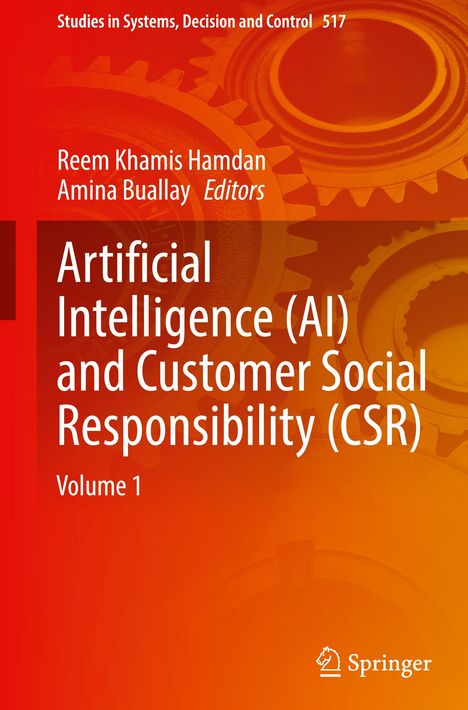Artificial Intelligence (AI) and Customer Social Responsibility (CSR), Gebunden
Artificial Intelligence (AI) and Customer Social Responsibility (CSR)
(soweit verfügbar beim Lieferanten)
- Herausgeber:
- Amina Buallay, Reem Khamis Hamdan
- Verlag:
- Springer Nature Switzerland, 07/2024
- Einband:
- Gebunden, HC runder Rücken kaschiert
- Sprache:
- Englisch
- ISBN-13:
- 9783031509384
- Artikelnummer:
- 11921272
- Umfang:
- 1160 Seiten
- Nummer der Auflage:
- 2024
- Ausgabe:
- 2024
- Gewicht:
- 2055 g
- Maße:
- 241 x 160 mm
- Stärke:
- 73 mm
- Erscheinungstermin:
- 16.7.2024
- Hinweis
-
Achtung: Artikel ist nicht in deutscher Sprache!
Klappentext
The impact of artificial intelligence (AI) on business and society has been significant, with the incorporation of AI technologies such as robots, facial recognition, algorithms, and natural language processing into business leading to both corporate benefits and potential challenges for stakeholders. The question of how to engage in responsible business practices in the era of AI is an important one, and there is a need for more research on the relationship between AI and corporate social responsibility (CSR). As AI becomes more prevalent, there is a growing focus on the ethical implications of AI and the potential for AI to perpetuate biases or to displace human workers. CSR initiatives can include considerations of ethical AI in the development and use of AI systems. AI has the potential to solve many global challenges and improve people's lives, but it can also have negative consequences if not developed and used responsibly. CSR initiatives can focus on the social impact of AI, including efforts to ensure that the benefits of AI are distributed fairly and that AI is used for the common good. CSR initiatives often involve engaging with stakeholders, including employees, customers, and communities, to understand their needs and concerns and to ensure that their interests are taken into account. This can include engaging with stakeholders about the use of AI in the organization and its potential impacts The adoption of AI in business is changing many aspects of doing business in a socially responsible manner, and there is a need to examine the potential unethical behaviors and novel ways of engaging in CSR that may arise. This book aims to focus on AI and CSR, and to advance our understanding of the role of AI in organizations and the literature on CSR by assembling high-quality papers with a strong connection between theory and practice.


